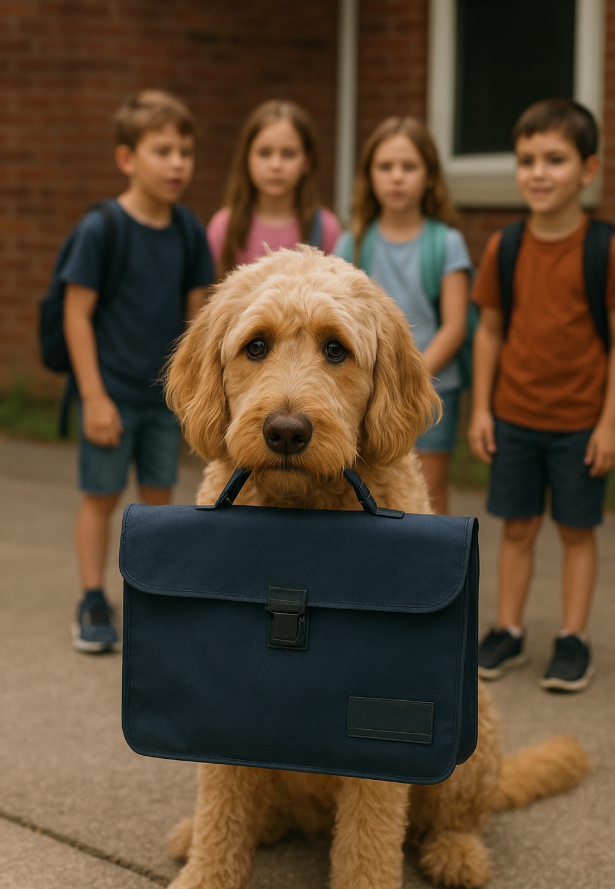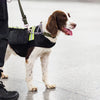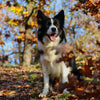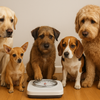From Busy Summers to Quiet Homes: Helping Dogs Adjust When Routines Change

For many families, summer holidays are a whirlwind of activity – days out, visitors coming and going, children at home, and a household full of noise and company. For our dogs, this often means more attention, more playtime, and rarely a dull moment.
But when the school term starts again and routines shift back to normal, life at home can suddenly feel very quiet. For some dogs, especially those who thrive on company, that change can be unsettling. They may feel bored, frustrated, or separation anxiety may kick in so don't be surprised by behaviour changes.
Signs Your Dog May Be Struggling
Dogs can’t tell us when they’re feeling bored or lonely, but their behaviour often speaks volumes. Things to look out for include:
- Chewing and destructive behaviour – shoes, furniture, or even their own bed.
- Digging – either outside in the garden or pawing at carpets and rugs indoors.
- Excessive barking or whining – seeking attention or voicing their frustration.
- Attention-seeking behaviour – constantly nudging, pawing, or demanding play.
- Changes in mood – seeming depressed, withdrawn, or less interested in play and walks, repeated paw licking or chewing.
While these behaviours can be frustrating, they’re often your dog’s way of coping with a sudden drop in stimulation and company.
Why the Change Affects Dogs
Dogs are creatures of habit, and they look to us to provide structure in their day. During the summer, the house might be buzzing with activity – lots of interaction, more frequent walks, and spontaneous games in the garden. Suddenly, when everyone heads back to work or school, your dog’s environment feels empty, they've lost their busy pack and extra activities time.
That contrast can be jarring, especially for younger dogs or breeds that thrive on mental and physical stimulation, like Spaniels, Collies, and Retrievers.
How You Can Help Your Dog Adjust
The good news is there are plenty of ways to ease the transition and help your dog feel settled again:
1. Gradually reintroduce alone time
If you know the routine is about to change, start by giving your dog short periods of independence while you’re still at home. This helps them get used to being on their own without stress.
2. Provide enrichment activities
Puzzle feeders, long-lasting chews, or treat-dispensing toys keep your dog’s mind occupied. Mental stimulation is just as important as physical exercise. A radio playing quietly in the background may help too.
3. Stick to a routine
Try to keep walks, meals, and play sessions at consistent times. Predictability can be very reassuring for dogs.
4. Quality over quantity
Even if you can’t be around as much, make the time you do spend together really count. Interactive games, training sessions, and one-on-one play strengthen your bond.
5. Create a calm safe space
A cosy bed or crate in a quiet corner gives your dog somewhere to retreat and relax. Having a “den” helps them feel secure.
6. Don’t punish frustration behaviours
Chewing or barking is often a symptom of boredom, not “naughtiness.” Redirect with appropriate toys, exercise, and attention rather than punishment.
When to Seek Extra Support
If your dog’s behaviour changes dramatically, or they seem persistently anxious or depressed, it’s worth speaking to your vet or a qualified behaviourist. Sometimes professional guidance and natural supplements like Ace Canine's Settlers or Epimmune can help make a difference.
Helping Dogs Thrive Through Change
Just like us, dogs can find changes in routine tricky to adjust to. By spotting the signs early and putting strategies in place, you can help them cope more easily with the shift from a busy, sociable summer to a quieter home life. With patience, consistency, and plenty of enrichment, your dog will soon settle into their new routine and feel happy, secure, and confident again.
-
Posted in
Competition dogs, Competitions, Dog Agility, Dog Agility Fitness, Dog Anxiety, dog arthritis, Dog body language, Dog diarrhoea, Dog digestion, Dog dull coat, Dog gut problems, Dog hair loss, dog itchy skin, Dogs and children, Owners Stories, puppies, Scared Dog, Separation Anxiety, SLO in Dogs, Superbiotic for dogs, The No1 dog joint care supplement, Working Dogs















